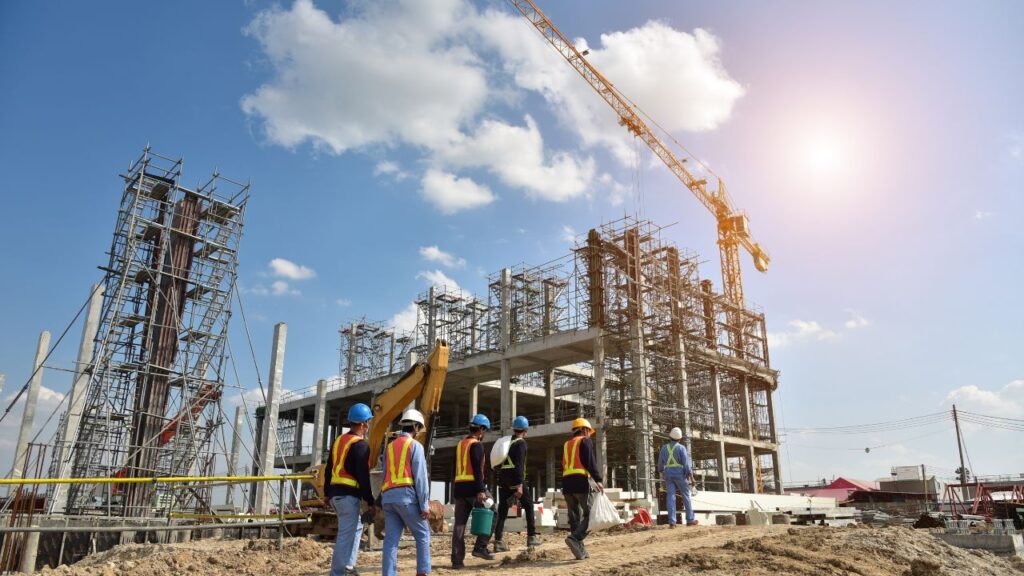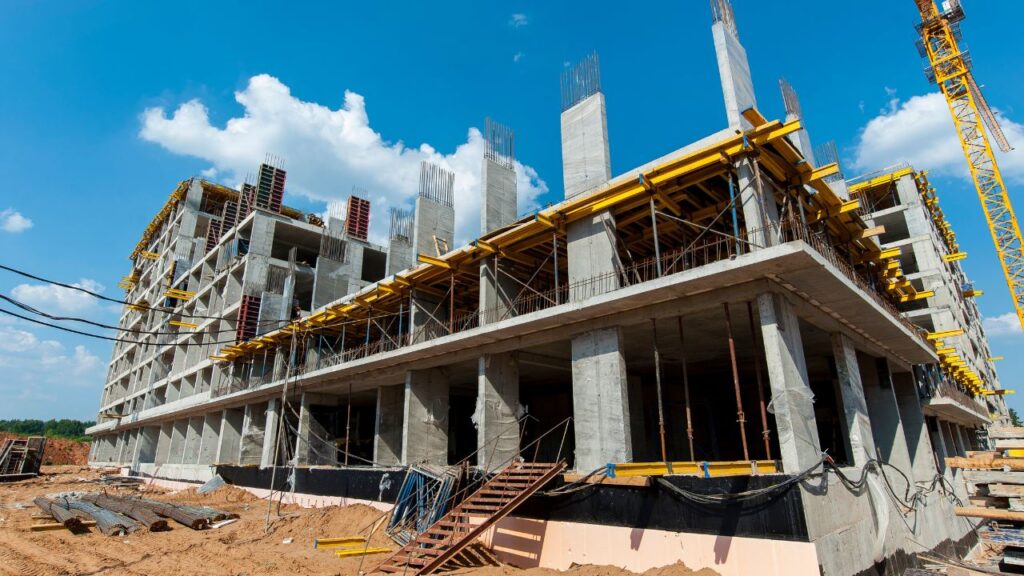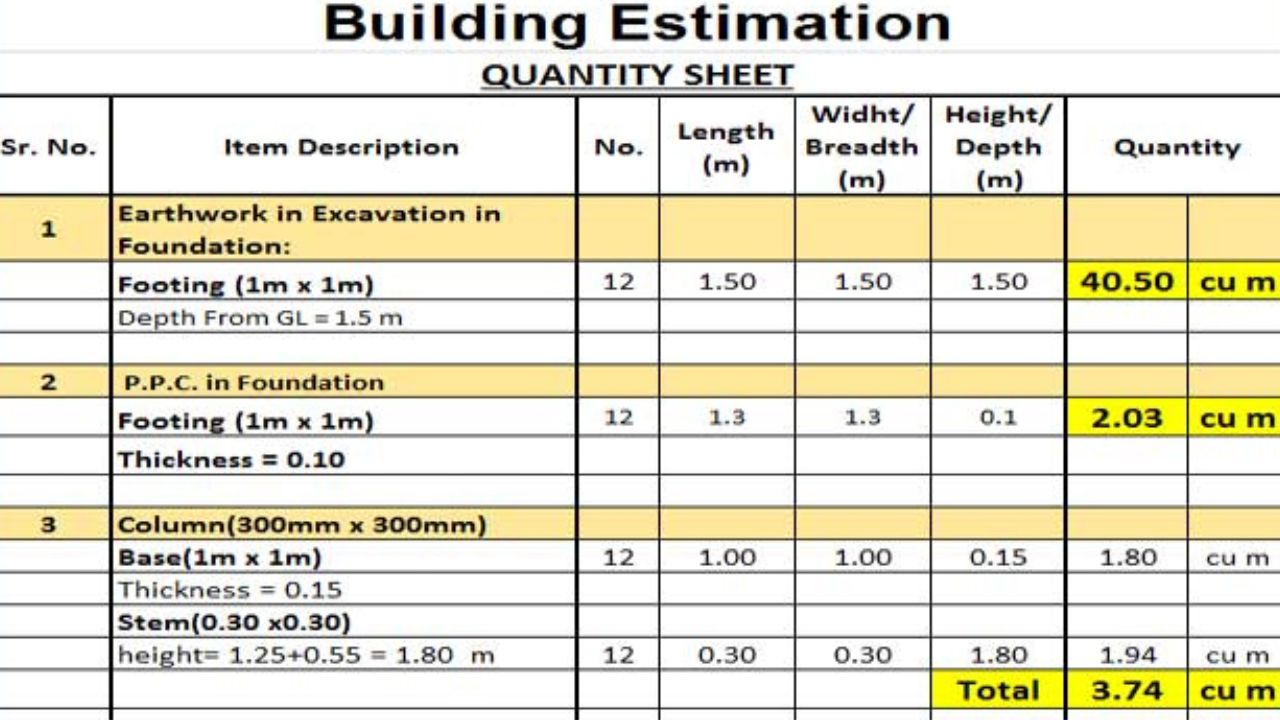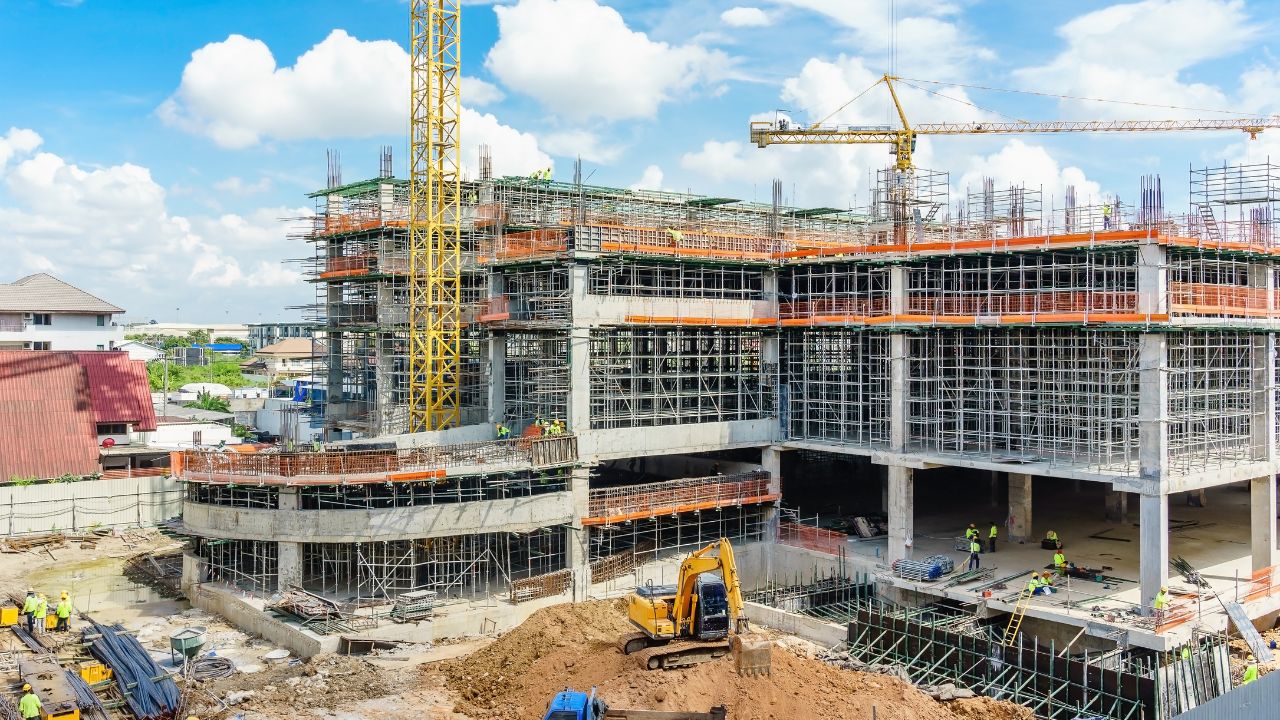Building Construction Estimate
The cost of building construction per square foot can vary significantly depending on various factors such as location, materials, design complexity, and labor costs. On average, in the United States, the cost typically ranges from $100 to $400 per square foot for residential construction. Basic, straightforward projects with standard materials and minimal customization tend to fall on the lower end of this spectrum, while high-end or custom-built homes with luxury features and intricate designs may surpass the $400 mark.

Commercial construction costs also fluctuate widely, but they can be even higher, sometimes exceeding $500 per square foot for specialized facilities. It’s crucial to consult with local contractors, architects, and construction professionals to obtain accurate estimates tailored to your specific project, as local market conditions and regulations can greatly influence the final cost per square foot.
Are You Looking For?

Make Informed Design Decisions Showcase Your Design Ideas
Get RenderingCall Us To Discuss More at 561-530-2845
Understanding Construction Cost Estimation
In essence, construction cost estimation is the process of determining the viability of a project, formulating a bid or quotation, and establishing a project budget. It plays a pivotal role in project planning, profit assessment, resource allocation, and scheduling. This comprehensive approach takes into account all expenses associated with a construction project, including both direct and overhead costs, to arrive at the most competitive and realistic project cost. While manual estimation can be time-consuming, the use of estimation software significantly expedites the process, making it more efficient and precise.
The optimal moment for job estimation
The process of estimating job costs should commence well before the construction phase kicks off, ideally during the project’s conceptualization stage. Without a clear grasp of the project’s expenses, providing an accurate quote or submitting a competitive bid becomes virtually impossible. You risk undertaking a project with uncertain profitability and the potential for losses. To avert such complications, it is imperative to generate a detailed construction cost estimate prior to commencing any construction work.
Defining the project scope
The first step involves establishing a consensus on the project’s scope, often referred to as the order of magnitude. During this phase, you define your client’s expectations, the project’s purpose, intricacy, and design. Additionally, you must account for any legal or regulatory factors that might impact the construction process, as well as consider the project’s location and any specialized considerations, such as eco-friendliness.
Engaging in the design phase
Once the project’s scope is clearly defined, the design phase comes into play. At this juncture, a cost estimation takes into account the materials and construction processes, striving to identify the most cost-effective and practical approaches. The schematic design estimate becomes an integral part of the construction documents from which bids are ultimately derived.
Preparing construction cost estimates for bidding
When crafting a construction cost estimate for a project bid, various data sources are leveraged, including the design estimate, subcontractor quotations, quantity takeoffs (covering material costs and construction processes), direct and indirect expenses, and profit margins. The more accurately your bid reflects the total cost while upholding quality standards, the greater your likelihood of winning the bid.
Project control estimates for construction
Project control estimates come into play after the contract has been signed but prior to commencing the actual construction work. These estimates facilitate proactive planning and the anticipation of potential challenges. Effective project management, anchored in control estimates, can help ensure the project stays on schedule and within budget, satisfying project owners and investors alike.
Responsibility for Cost Estimation
The task of cost estimating can fall under different purviews, depending on the scale of the construction endeavor. Large construction companies often maintain dedicated in-house construction cost estimators, while smaller builders or subcontractors typically handle their own estimates. Nevertheless, anyone with a financial stake or vested interest in the project’s success should closely monitor project costs. Savvy cost estimators streamline their efforts and alleviate stress by harnessing construction estimating software, such as our Estimate Florida Consulting – a comprehensive tool for estimating and construction management.
Construction costs to include
In the realm of construction costs, it’s vital to consider every expense, whether they are direct or indirect in nature. Indirect costs encompass office-related expenses such as rent, maintenance, taxes, utilities, and even the costs associated with preparing bids, whether they are accepted or not. On the other hand, direct costs involve labor, materials, and equipment. Let’s delve into these aspects further.
Understanding Labor Costs
When crafting a construction cost estimate for a project bid, various data sources are leveraged, including the design estimate, subcontractor quotations, quantity takeoffs (covering material costs and construction processes), direct and indirect expenses, and profit margins. The more accurately your bid reflects the total cost while upholding quality standards, the greater your likelihood of winning the bid.
Performing a Quantity Takeoff
A quantity takeoff is an exhaustive inventory of all materials necessary to complete the construction project. This list encompasses items such as doors, timber, carpet, air conditioners, nails, light switches, wiring, tiles, and more. Accurate counting and measurement of materials are essential to ensure that actual costs align closely with estimated costs. These material costs constitute a critical component of an accurate project estimate.
Evaluating Material Prices
Derived from the quantity takeoff, an overarching material cost is determined. This evaluation necessitates accounting for price fluctuations, quantity-based discounts, and the costs associated with material delivery. Precise cost assessment, whether in terms of unit prices or linear length, is pivotal in achieving accurate construction cost estimates.
Assessing Equipment Costs
Equipment costs are another facet that needs to be considered when calculating construction expenses. Whether you’re acquiring equipment specifically for the project, renting it, or already own it, the associated costs must be accounted for. Additionally, you need to factor in expenses related to equipment operation, transportation, and security, especially if equipment needs to remain on-site.
Exploring Different Estimation Approaches
In the construction industry, various types of cost estimates serve distinct purposes, catering to the needs of diverse stakeholders involved in a project. Whether the client seeks affordability insights, a builder aims for profitability, a construction company intends to furnish a comprehensive quote, or an engineer endeavors to assess the feasibility of construction materials and methods, each estimate plays a crucial role. It is essential to time these estimates appropriately to maximize their impact on the project.

Feasibility Estimate
The Feasibility Estimate stands as the initial step, where an examination of the project’s scope and order of magnitude is conducted. The primary objective is to determine whether the project merits further consideration. This estimate, being the least accurate, largely relies on historical data and past experiences. It serves as an early indicator to assess the viability of a project, especially if it involves construction methods that your company may not be equipped to handle or that could prove prohibitively expensive.
Intermediate Estimate
Upon establishing feasibility, the Intermediate Estimate comes into play, delving deeper into the project’s size, complexity, and potential challenges. It offers a more detailed assessment but is still not entirely accurate. This estimate is largely founded on knowledge, previous experiences, and historical data, rather than precise, targeted information.
Preliminary Estimate
The Preliminary Estimate marks the stage at which blueprint and design data are integrated into the cost estimates. It categorizes costs and begins to scrutinize design particulars, helping to identify and rectify calculation errors.
Substantive Estimate
The Substantive Estimate follows the agreement on the project’s design, incorporating more precise material costs. At this point, potential material substitutions to reduce costs may be explored, or it may reveal budget allowances for premium upgrades. This stage is the last opportunity for significant changes.
Definitive Estimate
The Definitive Estimate is the final step, created after contracts are signed and all alterations have been finalized. At this juncture, all project details should be established and agreed upon. This estimate is the most accurate, essentially representing an exact cost calculation. Upon its completion, construction can commence with confidence in the project’s financial clarity and viability.
Traditional Construction Cost Estimation: From Manual to Digital Advancements
In the past, construction cost estimates were a meticulous affair, requiring an estimator armed with a pen, slide rule, and a trusty calculator. These estimations demanded a profound depth of knowledge and skill. Moreover, they consumed substantial amounts of time, sometimes stretching over months or even a year, prior to contracts being finalized and construction commencing. Handcrafted estimates, though labor-intensive, were fraught with the potential for errors, a situation that could spell financial peril for construction firms, rendering the entire process rather daunting.
The advent of spreadsheets brought a measure of relief, simplifying estimates for smaller building projects and rendering them more legible. However, they still bore the burden of human error and hinged on the expertise of their creator. Fortunately, the march of technology has ushered in significant improvements, significantly enhancing the precision and expediency of construction cost estimations.
The Advantages of Utilizing Construction Cost Estimating Software
Why opt for construction cost estimating software? While cost estimation can be a demanding task, it’s crucial to adopt a more efficient approach. Manual takeoffs are not only time-consuming but also carry a higher risk of errors. Embracing construction cost estimating software places you at the forefront, offering enhanced precision, better organization, and considerable time savings.
This software streamlines the process by compiling itemized costs, labor rates, change orders, and material expenses. This comprehensive approach enables precise job cost predictions, safeguarding against underbidding or overbidding.
FAQs
The cost of building construction can vary based on factors like location, materials, design complexity, and labor costs.
On average, residential construction costs range from $100 to $400 per square foot in the United States.
Commercial construction costs can be even higher, sometimes exceeding $500 per square foot for specialized facilities.
Estimating job costs should ideally start during the project’s conceptualization stage, well before the construction phase begins.
Defining the project scope is essential as it helps establish the project’s purpose, intricacy, design, and takes into account legal and regulatory factors.
The design phase focuses on identifying cost-effective and practical approaches for materials and construction processes.
Construction cost estimates for bidding use data from design estimates, subcontractor quotations, quantity takeoffs, and various expenses to provide accurate project cost predictions.
Project control estimates are used after the contract is signed but before construction begins, facilitating proactive planning and the anticipation of potential challenges.
The responsibility for cost estimation can vary, with large construction companies having in-house estimators, while smaller builders or subcontractors handle their own estimates.
Indirect costs include office-related expenses, while direct costs encompass labor, materials, and equipment expenses. Both are crucial for accurate cost estimation.
Conclusion
The process of construction cost estimation is a multifaceted endeavor that demands meticulous attention to detail and thorough consideration of various factors. From understanding the scope of the project to evaluating labor, materials, and equipment costs, the estimation process is the bedrock upon which the success of any construction project rests. The advent of construction cost estimating software, such as Estimate Florida Consulting, has revolutionized this process, offering efficiency, precision, and enhanced organization. Furthermore, timing these estimates appropriately, from feasibility to definitive estimates, plays a pivotal role in ensuring a project’s financial clarity and viability. Regardless of the scale of the construction endeavor, the responsibility for cost estimation should be taken seriously, with a keen eye on every expense, both direct and indirect. By embracing modern tools and approaches, construction professionals can navigate the intricate landscape of cost estimation with greater confidence and competitiveness in the industry.
Process To Get Building Construction Cost Estimate Report
Here I am going to share some steps to get your building construction cost estimate report.
-
You need to send your plan to us.
You can send us your plan on info@estimatorflorida.com
-
You receive a quote for your project.
Before starting your project, we send you a quote for your service. That quote will have detailed information about your project. Here you will get information about the size, difficulty, complexity and bid date when determining pricing.
-
Get Estimate Report
Our team will takeoff and estimate your project. When we deliver you’ll receive a PDF and an Excel file of your estimate. We can also offer construction lead generation services for the jobs you’d like to pursue further.
Google Reviews







